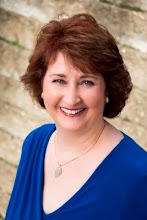 |
| Download Charlie's story at BWL |
Our world is made up of words. We write them, speak them, hear them, read them. We use them to describe our world, express our feelings, share experiences and expand our imaginations. How we put words together gives people some indication of our intelligence or our education; our current state of mind; our intentions.
But
because our world is made up of so many different ethnic groups and
nationalities, words are distinct and certainly subject to interpretation.
Whether you write or read or watch television programs, you might come across a
word or phrase which is unfamiliar. A simple example: what do you call the
rather long, cushioned piece of furniture in your living room? A sofa; a couch;
a divan? And to add another dimension to our confusion, in what century are we
talking? Is it a settee? What about that cast iron cooking pan? Did you grow up
calling it a frying pan or a skillet? Have you ever known it as a spider?
I
work only in the English language. I took French in high school and Spanish in
college but am fluent in neither. I spent a week in Paris one summer and after
perhaps half that time, I began to understand some of the signs and words I
came across but I could never begin to understand the spoken language as it is
rapid and lyrical and far beyond my high school experience. I envy people who
know more than one language. I enjoy reading books set in different countries
because although they are written in English, there are words unique to the
country of origin. Words like a lift (elevator), a boot (trunk of a car), a jumper
(sweater) are so fun to read.
What
are some of your favorite words? Are they part of your culture or unique to the
part of the country or world where you live? Do they have to do with your
ancestors? Is it a word your grandparent always said? Are they favorites
because of their definition, their spelling or their sound?
We
put words together to form sentences, thoughts or messages to impart
information. From our earliest introduction to language, we learn to use words
to express ourselves and to ask and answer questions about our world. We write
answers to test questions and conduct serious social debates.
I want you to think
about very short groups of words put together to form what we call sayings or idioms.
You can find these everywhere from bumper stickers to jingles and commercial
trademarks. Many of the more famous sayings can be found in Bartlett’s Familiar Quotations. From
childhood we began attributing sayings such as “Honesty is the Best policy” to
Abraham Lincoln or the famous “Ask not what your country can do for you, but
what you can do for your country” to President John Kennedy. Wonderful people like
Maya Angelou, Gandhi and Mother Theresa have left us a treasure trove of inspirational
sayings. Even though you might not recognize its author, quite often you know
and understand the saying.
Many words and sayings
are used so much they become clichés. While there is nothing wrong with clichés
(it’s raining cats and dogs), it is much more fun to use words that are fresh
and unique.
One of my favorites is
“Not all who wander are lost” which originated
with J.R.R.
Tolkien in The
Fellowship of the Ring. Another
is on the back of a tee-shirt. In a vertical row it has the days of the week –
“Sunday, Monday, Tuesday, Wednesday, Thursday, Friday, Saturday,” then across
the bottom – “See, there is no Someday.” Think about it. Does it speak to you as
it did me?
The same questions can
be asked about sayings as we asked about words. Where did the saying come from;
does it have multiple meanings depending on your ethnicity? Is there deeper
meaning than what you might first read into the words?
Years ago I began using
a saying on my website which I like to attribute to my new insight into my
world at a time when things didn’t make sense. At that time, I wasn’t always in
a good frame of mind. Two years after ending a forty year marriage, I was
diagnosed with cancer and began another arduous journey. Some days I had a very
hard time living this mantra, and yet most days they were the most important
words I could say to myself:
“Life is too short to
go through it in a bad mood.”
Think about idioms.
Write down some of your favorites. Is there a pattern in what you relate to? What
would your expression be based on something from your life or something you are
working toward in the future? Are your sayings funny or are they related to
growing and reaching new levels? Maybe they are about how to live life or
something about feelings, emotions and believing.
Above
my door where I read it every time I leave the house is another of my
favorites:
“It’s
never too late to live happily ever after.”
Barb Baldwin





















